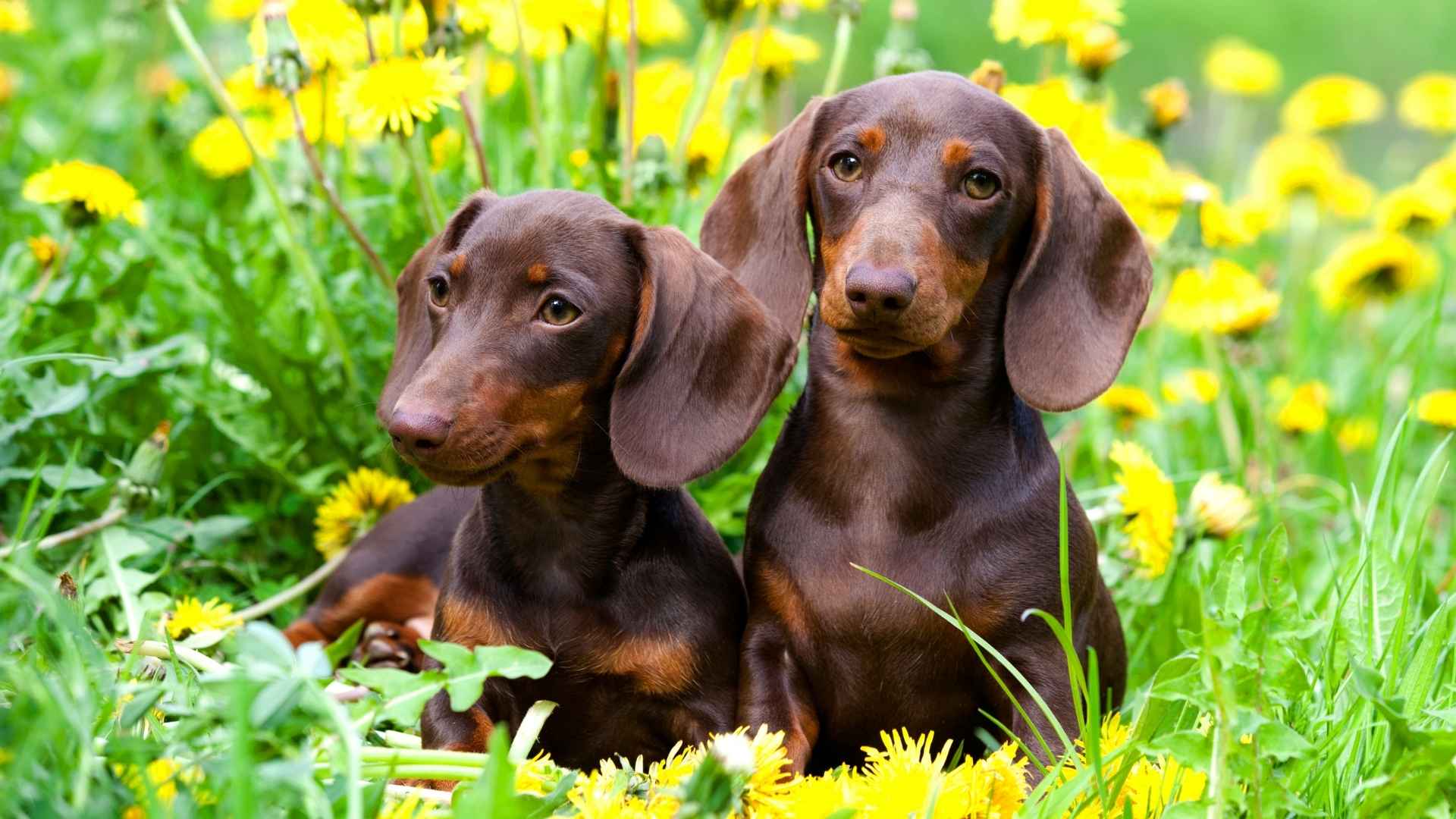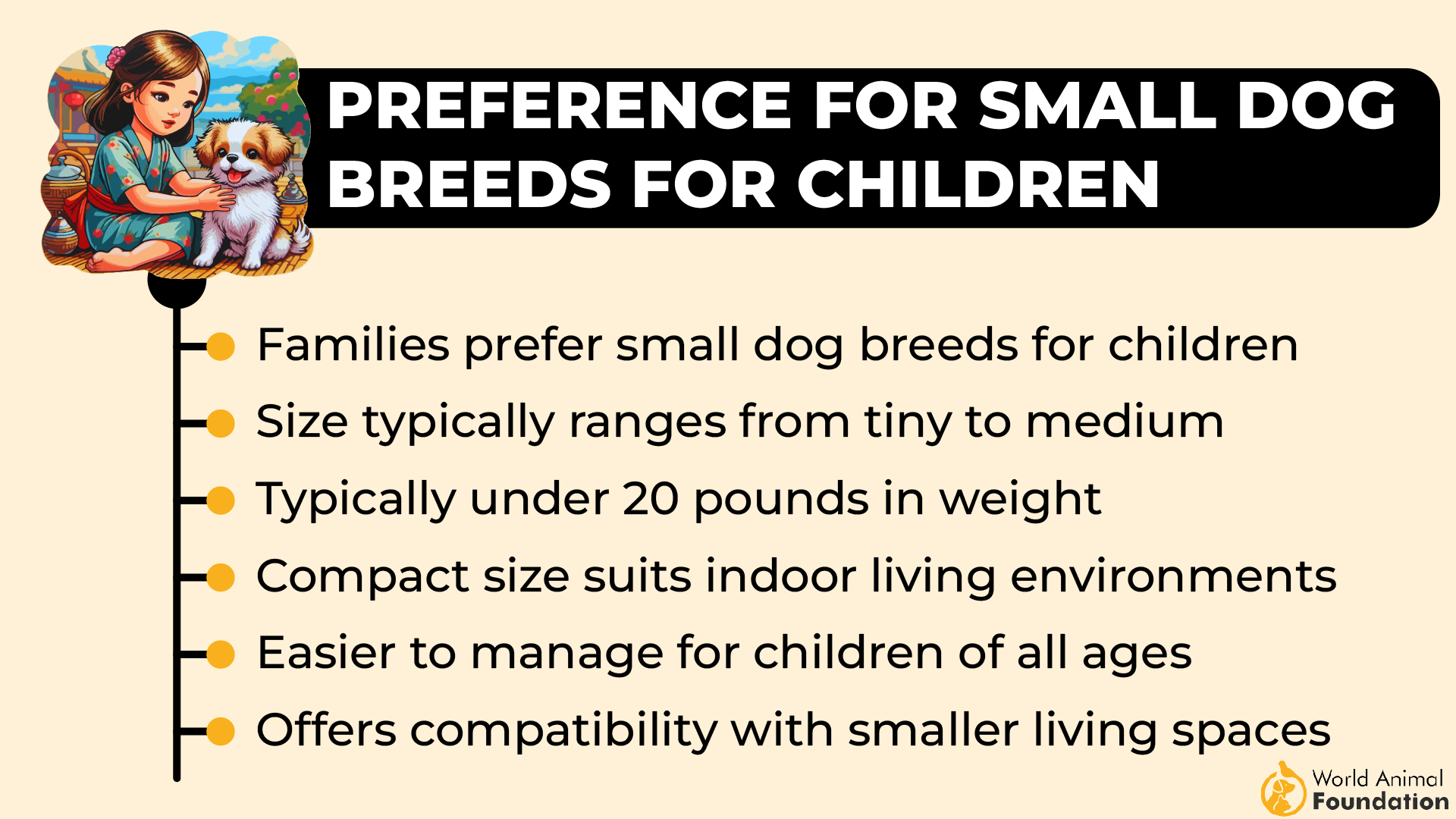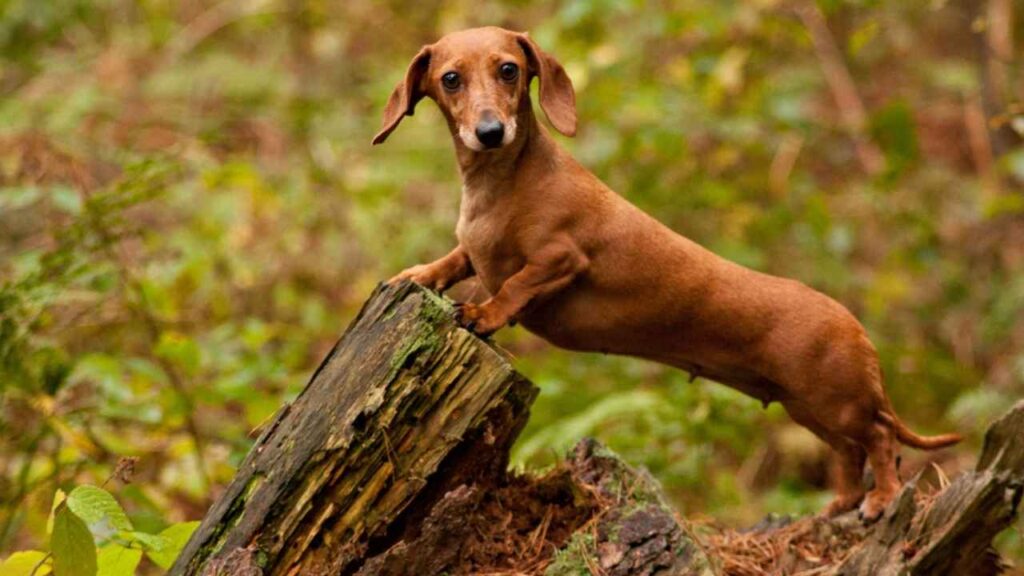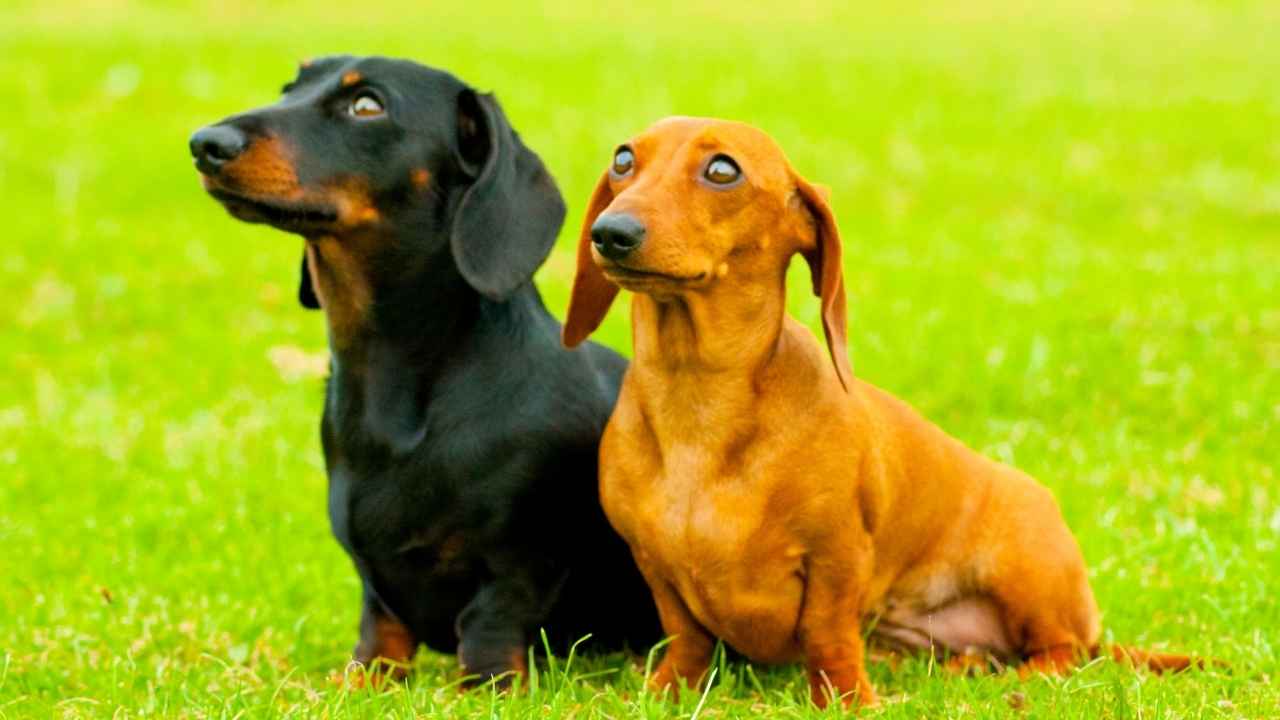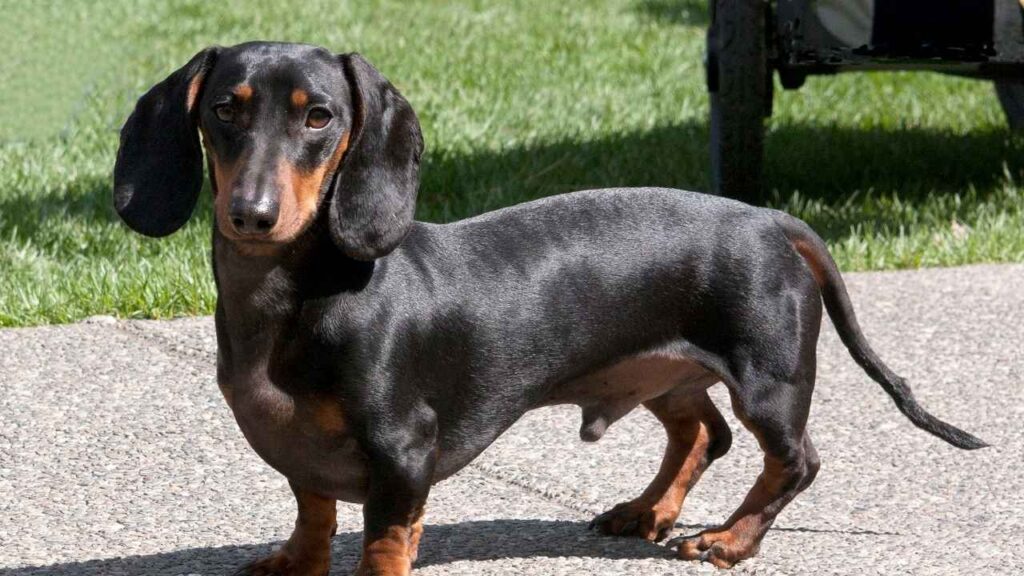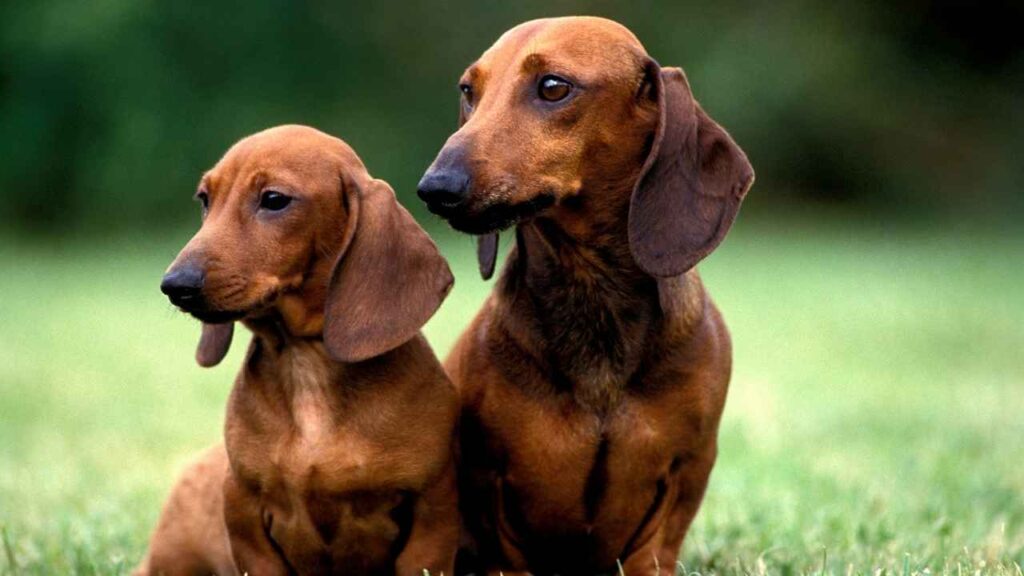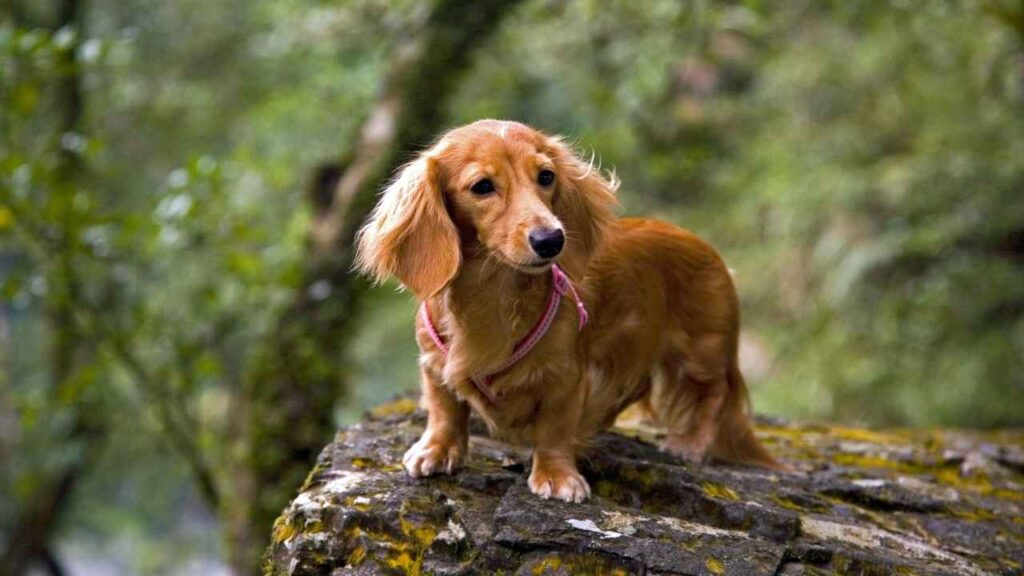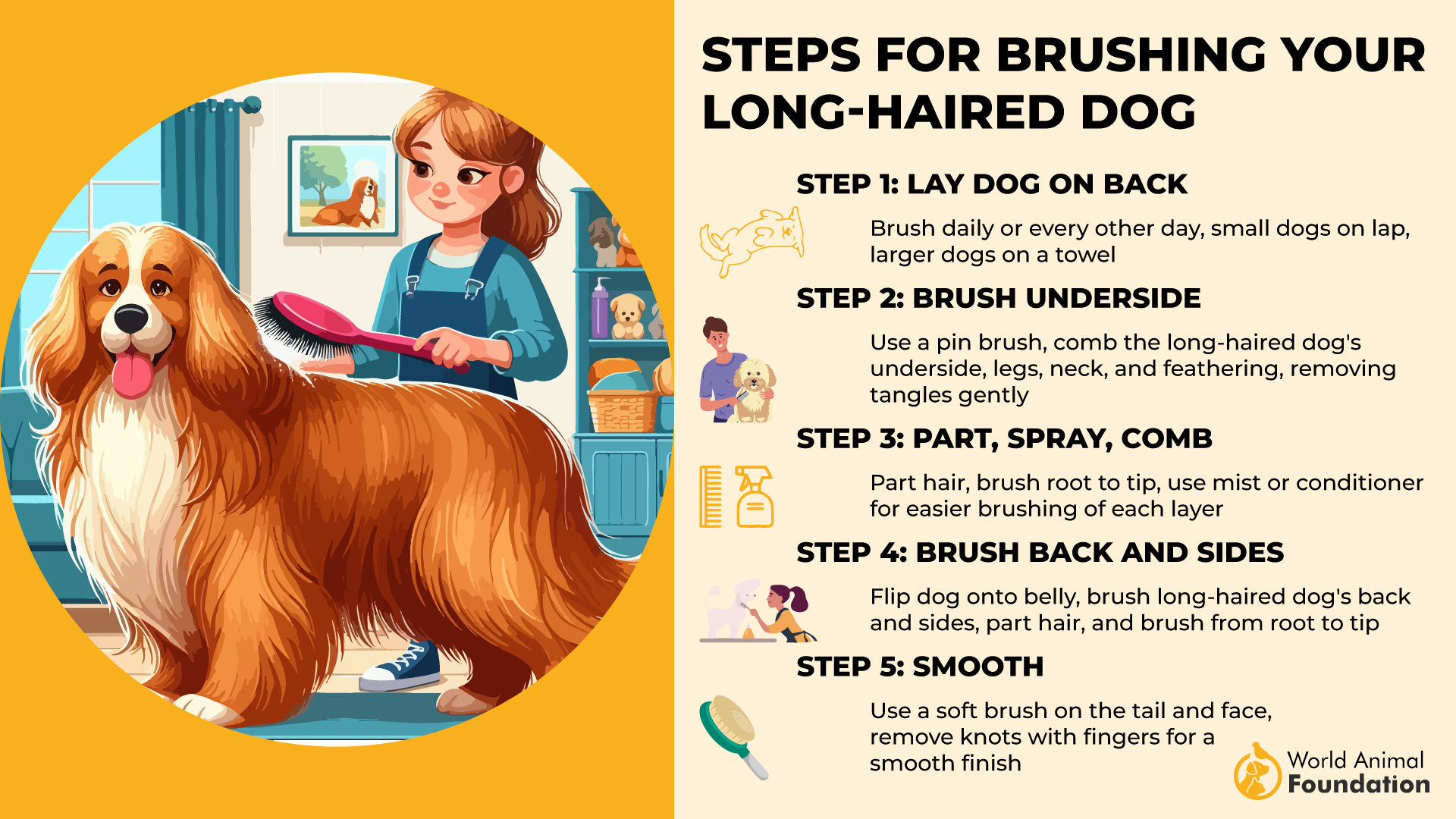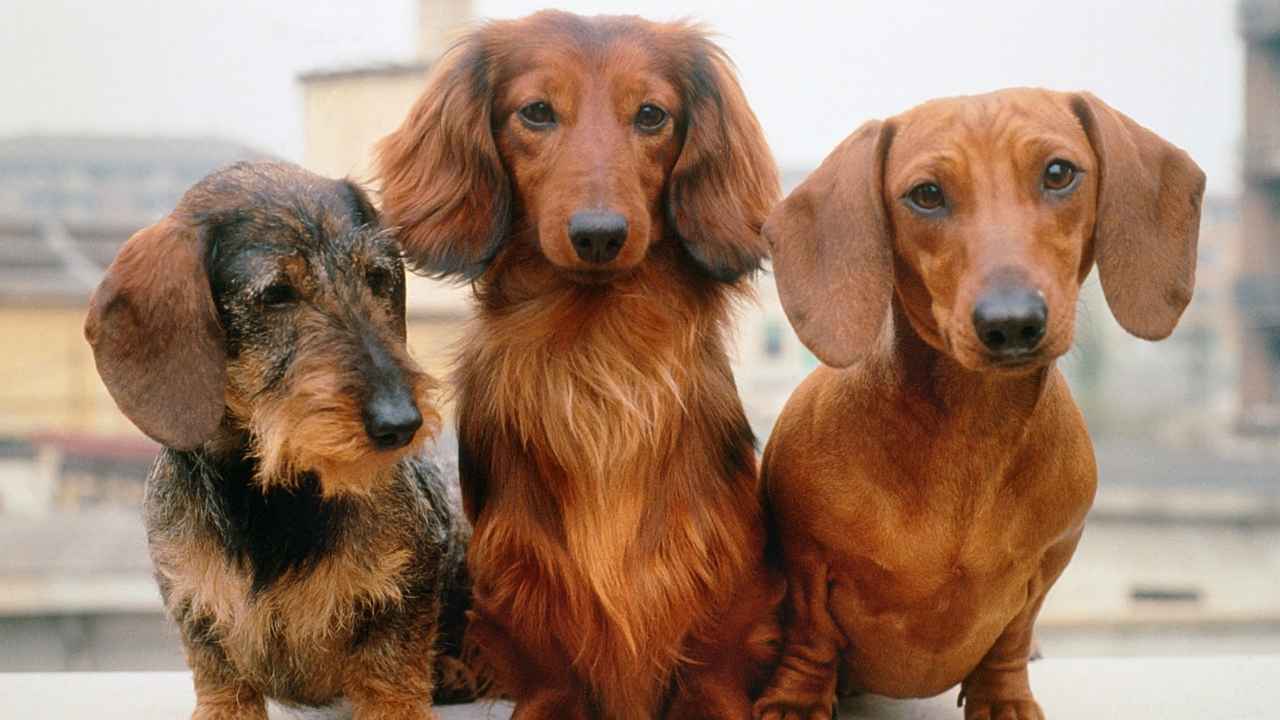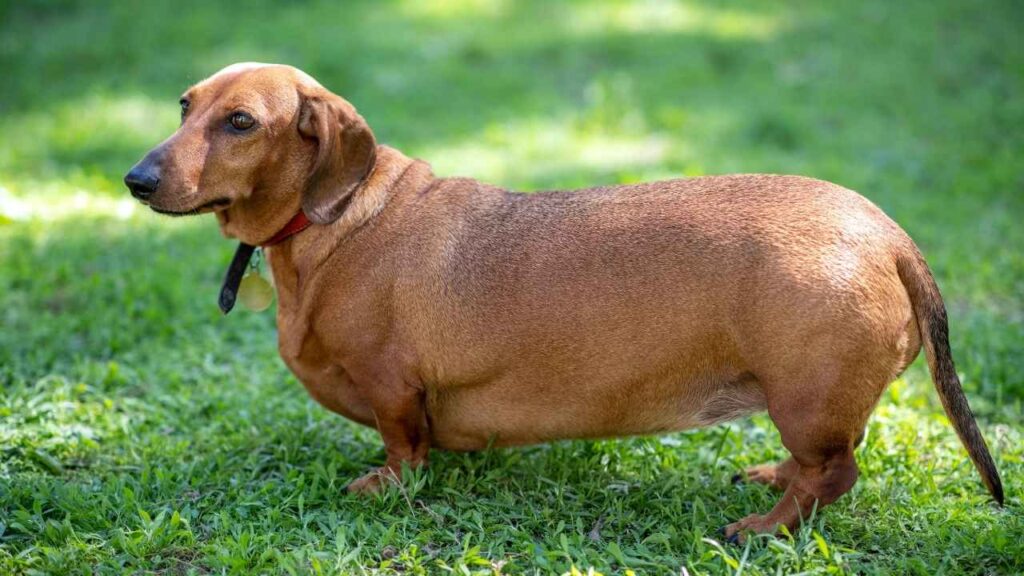Dachshunds, affectionately known as “sausage dogs,” are a captivating breed with a distinctive appearance and vibrant personality. Delving into the world of Dachshunds reveals a delightful diversity, as these spirited canines come in seven distinct types: Smooth, Long-haired, and Wire-haired, each with its own miniature and standard size variations. These charming dogs boast an intriguing blend of traits, combining the inquisitive nature of a hunter with the affectionate, playful demeanor of a family pet. Whether clad in a sleek coat or a fluffy mane, each type of Dachshund offers unique characteristics that make them a beloved choice for dog enthusiasts worldwide.
Dachshunds, often affectionately known as “wiener dogs” or “weenie dogs,” are a beloved and instantly recognizable breed known for their long bodies, short legs, and delightful personalities. Originally bred to hunt small animals like badgers and rabbits, their strong prey drive, bravery, and independent streak make them unique companions.
Whether you are an experienced dog owner or a first-time pet parent, the Dachshund breed offers something special. From their playful antics to their loyal nature, these dogs have become cherished family pets across the world.
Dachshunds come in a variety of types that differ in size, coat types, and personality traits. Understanding these variations is essential in choosing the right dog for your home. With three primary coat types and multiple sizes, the Dachshund can adapt to a variety of living situations, whether in an apartment or a home with a yard. In this guide, we’ll explore the different types of Dachshunds, their needs, and how to choose the right companion for you.
Dachshund Types Overview
According to the AKC, the Dachshund breed offers a unique set of characteristics across its various types, from the energetic Miniature Dachshund to the elegant Long-Haired Dachshund. While all Dachshunds share certain traits, such as their independent nature and strong prey drive, the differences in coat types, size, and grooming requirements can help potential owners make an informed decision.
Energy and Temperament:
-
Miniature Dachshunds are small and energetic, ideal for active individuals or families.
-
Long-haired dachshunds have a calm temperament but still need regular exercise.
Coat Types and Grooming:
-
Smooth Dachshunds have low-maintenance coats.
-
Long-haired dachshunds need frequent brushing.
-
Wire-haired dachshunds require regular grooming and hand-stripping.
Size and Suitability:
-
Miniature Dachshunds are perfect for apartments, weighing under 11 pounds.
-
Standard Dachshunds, weighing 16-32 pounds, need more space and exercise.
Choosing the Perfect Dachshund for Your Home
When choosing the right Dachshund, it’s important to consider several factors.
Size
The first thing to think about is the size of the dog. Standard Dachshunds are larger and weigh between 16 and 32 pounds, while Miniature Dachshunds typically weigh under 11 pounds. A smaller dog may be easier to manage in a smaller living space, but both types still require exercise and mental stimulation.
Coat
Next, consider the coat type. If you prefer a low-maintenance companion, the Smooth Dachshund might be ideal due to its minimal grooming needs. However, if you’re willing to invest time in grooming, the Long-Haired or Wire-Haired Dachshund could be a great choice. These dogs require more frequent brushing, but their coats are unique and beautiful.
Personality
Additionally, keep in mind the dog’s personality traits. Dachshunds can be stubborn and independent, so training will require patience and consistency. However, they are intelligent and can thrive in homes where they are given plenty of mental and physical stimulation.
Types of Dachshunds
1. Standard Dachshund
The Standard Dachshund is the original version of the breed and is typically the first dog that comes to mind when most people think of a Dachshund. These dogs usually weigh between 16 and 32 pounds, with their long bodies and short legs making them instantly recognizable. Historically bred as hunting dogs, they were used to track down small prey like rabbits and badgers, giving them a fearless, strong-willed personality. Despite their small stature, they possess a lot of energy and courage.
Standard Dachshunds are highly intelligent dogs, but they can be independent and a bit stubborn, making training a challenge. Early socialization is key to ensuring that these dogs are well-behaved and confident in new environments. They are loyal to their families and enjoy being the center of attention. However, due to their long spines, they are more prone to back issues like intervertebral disc disease. It is essential to keep them at a healthy weight, avoid excessive jumping, and ensure they get regular exercise to stay fit and healthy.
The Standard Dachshund comes in three main coat types: smooth, long-haired, and wire-haired, each with its own grooming needs. Regardless of coat type, they all share similar personalities—lively, fun-loving, and incredibly affectionate. With the proper training and care, Standard Dachshunds can make excellent family pets.
2. Miniature Dachshund
Miniature Dachshunds are a smaller variation of the breed, typically weighing under 11 pounds. Though smaller in size, they share the same strong personality traits as their larger counterparts. These dogs were also bred for hunting, but their focus was on smaller animals. Despite their small stature, Miniature Dachshunds are brave, curious, and highly energetic. They have a confident nature and often believe they are much bigger than they really are, which makes them excellent watchdogs.
Training Miniature Dachshunds can be challenging, as they tend to be independent and can have a stubborn streak. However, they are incredibly intelligent and can be taught commands with patience and consistency. These dogs do best in homes where they are given plenty of attention, mental stimulation, and regular exercise. Because of their size, they are well-suited for apartment living but still require daily walks and playtime to stay healthy and happy.
According to ASPCA, Miniature Dachshunds come in a variety of coat types, including smooth, long-haired, and wire-haired. Smooth-coated Miniature Dachshunds require minimal grooming, while long-haired and wire-haired varieties need more attention. Regardless of the coat type, these dogs are highly adaptable and affectionate, making them a great choice for families or individuals who can provide them with the care and attention they need.
3. Rabbit Dachshund
A rarer variation of the Dachshund, the Rabbit Dachshund is a small, lightweight dog that typically weighs under 7 pounds. While not officially recognized as a separate breed, these tiny Dachshunds have been bred to hunt rabbits, and their small size makes them ideal for burrowing and tracking small game. Rabbit Dachshunds are particularly energetic and have a strong prey drive, which means they love to chase small animals and are always on the go.
Due to their small size and energy, Rabbit Dachshunds are best suited for families who are prepared to provide them with plenty of exercise and mental stimulation. They may require more frequent meals to keep up with their energy demands, and because of their smaller size, they may also be more vulnerable to health issues like heart problems and joint issues. Like other Dachshunds, Rabbit Dachshunds can be independent and stubborn, so early training and socialization are essential.
Although not officially classified as a separate type by major kennel clubs, Rabbit Dachshunds can come in different coat types—smooth, long-haired, or wire-haired. Their size and energetic nature make them a bit more difficult to handle, so they are not always recommended for first-time dog owners.
4. Smooth Dachshund
Smooth Dachshunds, also known as smooth-coated Dachshunds, are the most common type of the breed. These dogs have a sleek, shiny coat that lies flat against their body, making them relatively low-maintenance when it comes to grooming. Their short, smooth coats come in various colors and patterns, including the popular black and tan and the rare double dapple dachshund variety. While their coat doesn’t require much care, these dogs still need regular exercise and mental stimulation to stay healthy and happy.
As per Purina, Smooth Dachshunds are intelligent dogs with an independent nature, which can make training a challenge. They are known for being loyal, but they can also be a bit stubborn, requiring patience and consistency in training. Early socialization is important to ensure that they grow up to be well-adjusted and well-behaved pets. Though they are smaller in size, Smooth Dachshunds are energetic and love to explore their environment. Regular exercise, including walks and playtime, is crucial to prevent them from becoming bored or overweight.
Smooth Dachshunds are great companions for families, singles, and elderly individuals alike. Their manageable grooming needs, combined with their affectionate nature, make them a popular choice for many dog owners. However, like all Dachshunds, they are prone to back problems, so it’s important to ensure they don’t gain excessive weight or strain their backs.
5. Long-Haired Dachshund
Long-haired Dachshunds are known for their luxurious, flowing coats. Their silky coats give them an elegant appearance, but this also means that they need regular brushing to prevent matting and tangling. they have a calm and affectionate personality, often being slightly more reserved than their smooth or wire-haired counterparts. They enjoy spending time with their families and thrive in homes that provide them with both mental and physical stimulation.
The grooming requirements for Long-Haired Dachshunds can be a bit more demanding, but the effort is worth it for their stunning appearance. Their coat tends to shed less than the other types, but it still requires regular brushing, especially during shedding seasons. Long-haired Dachshunds are known for being gentle and patient, making them excellent pets for families with children and other dogs. Despite their calm demeanor, they still need regular exercise and playtime to stay fit and avoid gaining excess weight.
In terms of health, Long-Haired Dachshunds are prone to the same issues as other Dachshund types, such as back problems and obesity. It’s essential to keep them at a healthy weight, avoid excessive jumping, and provide them with regular exercise to prevent joint issues, as suggested by Royal Canin. These dogs are ideal for families willing to invest time in grooming and care.
6. Wire-Haired Dachshund
Wirehaired Dachshunds are easily identified by their rough, wiry coats, which require regular grooming to maintain their distinctive texture. This coat type tends to shed less than smooth coats, but it does require hand-stripping or regular clipping to keep it in good condition. Wire-haired Dachshunds are known for their energetic and playful nature. They are more extroverted compared to other Dachshund types, making them a good choice for active families or individuals who are looking for a more playful, high-energy dog.
Wire-haired Dachshunds are incredibly intelligent and can be trained, though they tend to be a bit more independent and stubborn. They were originally bred to hunt small game-like badgers and are fearless, so they may sometimes display a strong prey drive. Early socialization is key to ensuring they develop into well-behaved pets who can live with other dogs and pets. Despite their energetic nature, Wire-Haired Dachshunds can be excellent watchdogs, alerting owners to any potential threats.
Due to their energetic and spirited nature, Wire-Haired Dachshunds require regular exercise and mental stimulation. They are ideal for active families who enjoy taking their dogs on walks, hikes, or playtime in the yard. Regular grooming is a must, but their playful and loyal nature makes them a rewarding companion for the right family.
7. Short Haired Dachshund
The Short-Haired Dachshund, often referred to as the Smooth-Haired Dachshund, is known for its sleek, shiny coat that requires minimal grooming. These delightful dogs are beloved for their independent yet affectionate nature, making them great companions for families or individuals. Their short coats don’t require regular brushing, though periodic care is essential to maintain healthy skin and prevent potential issues like hair loss. Despite their low-maintenance grooming needs, they still require regular exercise to ensure a healthy weight and to maintain their playful energy.
Short-haired dachshunds are often referred to as “badger dogs” due to their historical role in hunting badgers, wild boars, and other small animals. Their elongated bodies and short legs make them agile hunters, though today, many are simply cherished as family pets. While they may not have the same hunting drive as their ancestors, they still enjoy daily walks and playtime. Early socialization and training are crucial, as they can exhibit stubbornness, but their intelligence makes them highly trainable with patience.
Although generally healthy, Short-Haired Dachshunds are prone to certain health issues, including joint problems and intervertebral disc disease (IVDD), due to their long spines. To ensure a long, healthy life, a balanced diet and regular vet check-ups are essential. As with all Dachshunds, responsible breeders often conduct genetic testing to help identify potential health problems. Their floppy ears, a distinctive feature, may also be susceptible to ear infections, so regular ear cleaning is recommended to avoid complications.
Conclusion
Dachshunds, with their unique physical characteristics and various coat types, are a beloved breed among dog enthusiasts. Whether you choose a Short-haired, Long-haired, or Wire-haired Dachshund, you’re adopting an intelligent, delightful dog with an independent streak and a strong prey drive. Their distinctive elongated bodies and floppy ears give them a charming appearance, making them a favorite in families and among those who appreciate their energetic and loyal nature.
However, owning a Dachshund comes with responsibilities. It’s important to provide them with a balanced diet, regular exercise, and grooming suited to their coat type. While these adorable dogs are known for their strong hunting instincts—originally bred to hunt badgers and wild boar—they also make great companions. Regular check-ups with reputable breeders and genetic testing can help prevent health issues such as joint problems, intervertebral disc disease, and ear infections, which are common in the breed.
For prospective owners, joining the Dachshund Club or the American Kennel Club can provide valuable resources and support. Whether you’re raising two Dachshund puppies or welcoming an adult dog into your forever home, ensuring they receive proper care, training, and early socialization is key to their overall well-being. By choosing a responsible breeder, understanding their genetic makeup, and committing to proper care, you’re setting your Dachshund up for a healthy, happy life.
The dachshund breed, celebrated for its elongated body and spirited personality, is notably diverse, comprising seven distinct types that cater to various preferences and lifestyles. These types include standard and miniature variants, each available in three coat types: smooth, longhaired, and wirehaired. Each type brings unique characteristics and charm, from the sleek smooth coat to the tousled wirehaired and the elegant longhaired. This diversity allows dachshund enthusiasts to select a pet that aligns with their aesthetic and temperament preferences, while the breed collectively remains renowned for its playful nature, loyalty, and unwavering courage, ensuring a cherished companion for any household.

